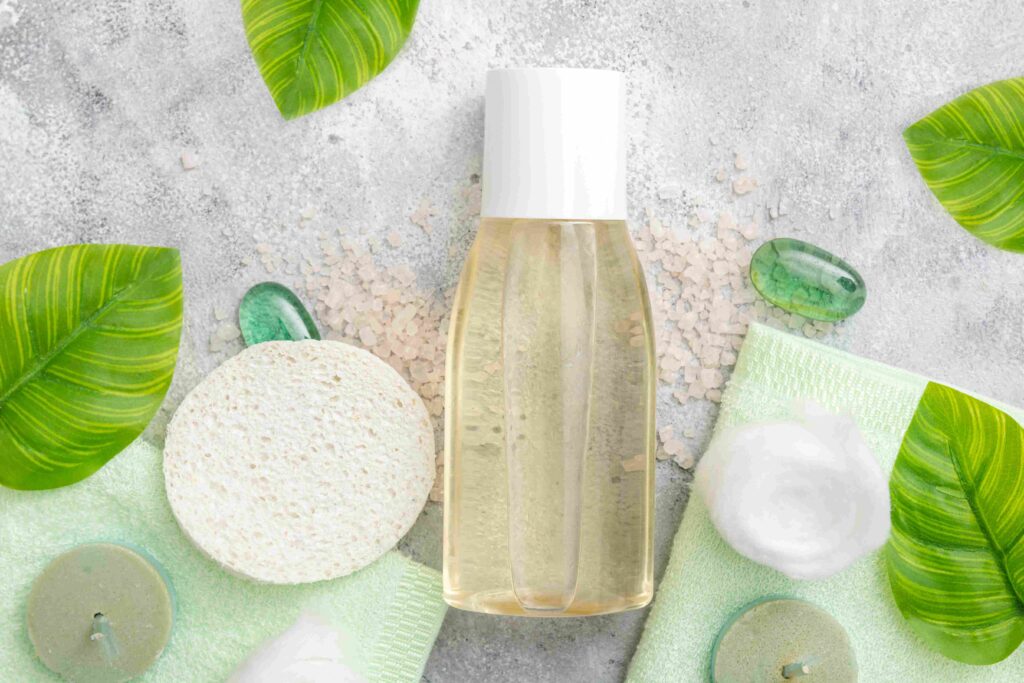Is Body Oil Better Than Lotion?

Unveiling the Best Skin Hydration Solution
The quest for soft, supple, and healthy skin takes us through a maze of skincare products. Two leading contenders, body oil and lotion, make it to the top of many people’s hydration routines. But the question “Which is better?” continues to echo in beauty discussions. Each brings its unique properties to the table, leading to divided opinions on which moisturizer reigns supreme.
This blog post dives deep into the science and practicalities of body oils and lotions. We’ll investigate their differences, advantages, and potential drawbacks to help you decide which might be best for your specific skincare needs.
Body Oils: The Essence of Moisture
Body oils are typically plant-based oils like coconut, jojoba, argan, or sweet almond oil. They may also sometimes contain essential oils and infused blends. Body oils generally lack water and possess the following characteristics:
-
Occlusive Action: Body oils excel at creating a protective seal on the skin that traps in moisture, ensuring long-lasting hydration and minimizing water loss.
-
Skin Barrier Protection: They can repair and strengthen a compromised skin barrier, a leading cause of dryness and irritation.
-
Antioxidant Power: Many plant-based oils contain antioxidants that protect skin from damaging free radicals, supporting overall skin health.
Lotions: The Versatile All-Rounder
Lotions are a staple in skincare routines and usually feature a mix of oils, water, emulsifiers, and other ingredients like hydrating or soothing additives. Here’s why lotions dominate the moisturizer market:
-
Emollients and Humectants: Lotions often contain emollients (which smooth the skin) and humectants (which attract moisture), giving a well-rounded hydration boost.
-
Ease of Absorption: Their lighter consistency makes them easier to spread and absorb quickly, leaving the skin feeling less greasy.
-
Ingredient Combinations: Lotions can cater to a wider range of needs, with ingredients like hyaluronic acid, ceramides, or plant extracts designed for everything from anti-aging benefits to addressing skin sensitivities.
The Skin Type Factor
Perhaps the biggest distinction between body oils and lotions comes down to your individual skin type:
-
Dry to Very Dry Skin: Body oils might be your saving grace. Their deep moisturizing properties and protective barrier abilities work wonders on rough, flaky, or parched skin.
-
Normal Skin: Both body oils and lotions may be suitable! Experiment to find your preference – depending on the product and specific ingredients, both options can maintain healthy hydration.
-
Oily or Acne-Prone Skin: Tread carefully with body oils, as they may clog pores and contribute to breakouts. Look for non-comedogenic oils or opt for lighter lotion formulas specifically designed for oily skin.
Choosing the Right Body Oil or Lotion for You
Regardless of which hydrator you prefer, make informed choices by considering these factors:
-
Ingredients: Pay attention to the composition. For oils, focus on plant-based, non-comedogenic options. In lotions, seek nourishing ingredients and avoid fragrances or potential irritants if you have sensitive skin.
-
Purpose: Is your main goal deep hydration, quick absorption, or addressing specific skin concerns? Tailor your choice accordingly.
-
Climate: During cold and dry seasons, oils offer a much-needed protective barrier. Hot and humid weather might favor lightweight lotions.
When is Body Oil a Better Choice than Lotion?
Body oil has the advantage over lotion in these scenarios:
- Extremely Dry Skin: If lotions alone leave your skin feeling thirsty, adding an oil after application creates a more potent moisture shield, combating chronic dryness.
- Post-Shower Hydration: Applying oil to damp skin enhances its sealing effect, trapping moisture for long-lasting softness.
- Dry Climates: During winter or in colder locales, body oil protects against moisture loss and harsh conditions.
When is Lotion a Better Choice than Body Oil?
Lotions take the lead over body oil when:
- A Fast Fix is Needed: If you’re in a hurry, lotions usually absorb faster with less chance of feeling greasy.
- Specific Skincare Goals: When concerns like wrinkles, dryness, or skin irritations demand targeted treatments, lotions allow for a broad range of beneficial ingredient combinations.
- Warm Climates: During humid weather, a lightweight lotion prevents heavy, sticky residue on the skin.
Additional Factors to Consider
Beyond skin type and desired use, think about these aspects to help you make a savvy choice:
-
Cost: Body oils can vary in price based on type and quality, although simple options like coconut or sweet almond oil can be very budget-friendly. Lotions span an even wider price range, from bargain finds to more expensive formulas.
-
Application: Applying body oil to damp skin enhances absorption, meaning a little product goes further. Lotions can be used on dry skin, but larger amounts may be needed to cover desired areas.
-
Sensory Experience: Your personal preference in touch and smell plays a role! Explore a variety of oils and lotion scents to find what delights your senses.
Hybrid Skincare: Using Body Oils AND Lotions?
No rule says you need to choose one or the other exclusively! For optimal skin health, try these combination approaches:
-
Layering: Applying a lotion followed by body oil seals the deal, maximizing hydration and offering lasting protection for those who truly battle with severely dry skin.
-
Targeting: Treat areas like feet, knees, and elbows (that might need extra TLC) with nourishing body oil, while lotion can be used on less dryness-prone areas.
-
Seasonal Switch: Lean towards lotions for warmer months or everyday use and transition to body oils for cold seasons or deeper hydration sessions.
Busting Common Myths
Let’s squash some misconceptions about body oils and lotions:
-
Myth 1: Oils Cause Breakouts Not true for everyone! Oily or acne-prone skin may find some oils problematic, but plant-based options labeled “non-comedogenic” mean they won’t clog pores.
-
Myth 2: Oils are “Too Greasy” It depends on the oil! Jojoba and argan oils are lighter in consistency and absorb easier. Applying oil to damp skin also cuts down on the greasy feel.
-
Myth 3: Lotions Always Absorb Faster True in some cases, but certain oil formulas are surprisingly quick-absorbing and may disappear into the skin faster than you expect.
Bonus Tips:
-
Patch Test: If unsure how your skin might react to a new oil or lotion, start with a small patch test on the inner arm, particularly if you have sensitive skin.
-
Avoid Using Body Products on Facial Skin: Body oils and lotions have formulas targeted for body skin, which is generally thicker. Use these sparingly on the face (if at all) as they could irritate or clog facial pores.
-
Store Oils Properly: Dark, cool storage extends the shelf-life of body oils, preventing them from going rancid and preserving their skin-boosting properties.
The Verdict: It’s a Personal Preference
There isn’t a single, definitive answer to whether body oil or lotion is superior. Your experience and results will vary depending on your skin type, preferred ingredients, and the specific products you choose. However, knowing their unique differences and benefits puts informed decision-making power in your hands!
Both body oils and lotions serve an important purpose in any skincare routine. Experiment, listen to your skin, and enjoy the feeling of soft, supple, and well-hydrated skin no matter your chosen method.
Share Your Journey! Do you lean towards body oils or lotions for your skincare? What are your personal experiences and what products have you found effective? Share your stories and tips in the comments below!












